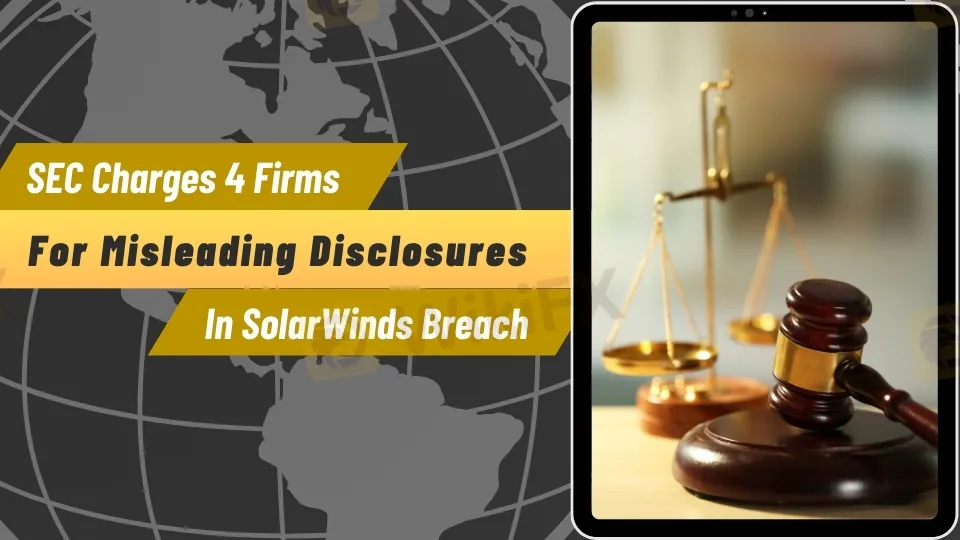简体中文
繁體中文
English
Pусский
日本語
ภาษาไทย
Tiếng Việt
Bahasa Indonesia
Español
हिन्दी
Filippiiniläinen
Français
Deutsch
Português
Türkçe
한국어
العربية
SEC Charges 4 Firms for Misleading Disclosures in SolarWinds Breach
abstrak:SEC charges Unisys, Avaya, Check Point, and Mimecast for misleading disclosures in the 2020 SolarWinds breach. Fines highlight cybersecurity risks and disclosure violations.

The U.S. Securities and Exchange Commission (SEC) has fined four companies—Unisys Corp., Avaya Holdings Corp., Check Point Software Technologies, and Mimecast—for misrepresenting the impact of the 2020 SolarWinds supply chain attack. According to the SEC, these companies misled shareholders and investors about the breachs true extent, marking another chapter in corporate cybersecurity failures.
SEC Fines Companies for Misleading SolarWinds Hack Disclosures
The SECs investigation revealed that these companies failed to disclose the full severity of the SolarWinds hack, which affected thousands of organizations worldwide. Russian state-sponsored hackers had targeted SolarWinds' Orion software, a popular IT management tool, gaining access to many enterprises and government institutions.
The fines, ranging from $990,000 to $4 million, are linked to allegations that the companies downplayed or misrepresented the breach in their public reports. Unisys, for example, was fined $4 million for withholding critical information concerning two SolarWinds-related attacks that resulted in the loss of huge amounts of sensitive data. This was the greatest penalty for violations of their disclosure controls.
Corporate Cybersecurity Failures Highlighted by SEC Investigation
Avaya and Check Point were also criticized for failing to sufficiently warn investors about the dangers of the SolarWinds assault. Avaya first stated that just a small number of emails were viewed, but the SEC discovered that hackers downloaded more than 145 files. Similarly, Check Point, a cybersecurity company, toned down its own breach, giving investors a false feeling of security.
These fines highlight the growing regulatory emphasis on corporate openness in cybersecurity disclosures. The SolarWinds assault, one of the most destructive in recent years, serves as a stark reminder that firms must not only repair breaches but also be transparent with their shareholders.
As cybersecurity events become more common and sophisticated, business executives and compliance officials must improve their reporting mechanisms. With the SEC tightening its regulation of breach reporting, investors and stakeholders are seeking more openness in the aftermath of these big assaults.
The increasing penalties for SolarWinds-related breaches convey a clear message: businesses can no longer afford to conceal cybersecurity flaws or submit deceptive reports.

Disclaimer:
Ang mga pananaw sa artikulong ito ay kumakatawan lamang sa mga personal na pananaw ng may-akda at hindi bumubuo ng payo sa pamumuhunan para sa platform na ito. Ang platform na ito ay hindi ginagarantiyahan ang kawastuhan, pagkakumpleto at pagiging maagap na impormasyon ng artikulo, o mananagot din para sa anumang pagkawala na sanhi ng paggamit o pag-asa ng impormasyon ng artikulo.
Broker ng WikiFX
Exchange Rate


